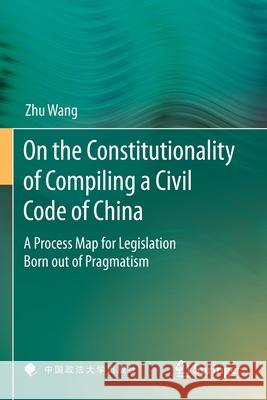On the Constitutionality of Compiling a Civil Code of China: A Process Map for Legislation Born Out of Pragmatism » książka
topmenu
On the Constitutionality of Compiling a Civil Code of China: A Process Map for Legislation Born Out of Pragmatism
ISBN-13: 9789811379024 / Angielski / Miękka / 2020 / 340 str.
On the Constitutionality of Compiling a Civil Code of China: A Process Map for Legislation Born Out of Pragmatism
ISBN-13: 9789811379024 / Angielski / Miękka / 2020 / 340 str.
cena 402,53
(netto: 383,36 VAT: 5%)
Najniższa cena z 30 dni: 385,52
(netto: 383,36 VAT: 5%)
Najniższa cena z 30 dni: 385,52
Termin realizacji zamówienia:
ok. 16-18 dni roboczych.
ok. 16-18 dni roboczych.
Darmowa dostawa!
Kategorie:
Kategorie BISAC:
Wydawca:
Springer
Język:
Angielski
ISBN-13:
9789811379024
Rok wydania:
2020
Wydanie:
2020
Ilość stron:
340
Waga:
0.51 kg
Wymiary:
23.39 x 15.6 x 1.93
Oprawa:
Miękka
Wolumenów:
01
Dodatkowe informacje:
Wydanie ilustrowane











